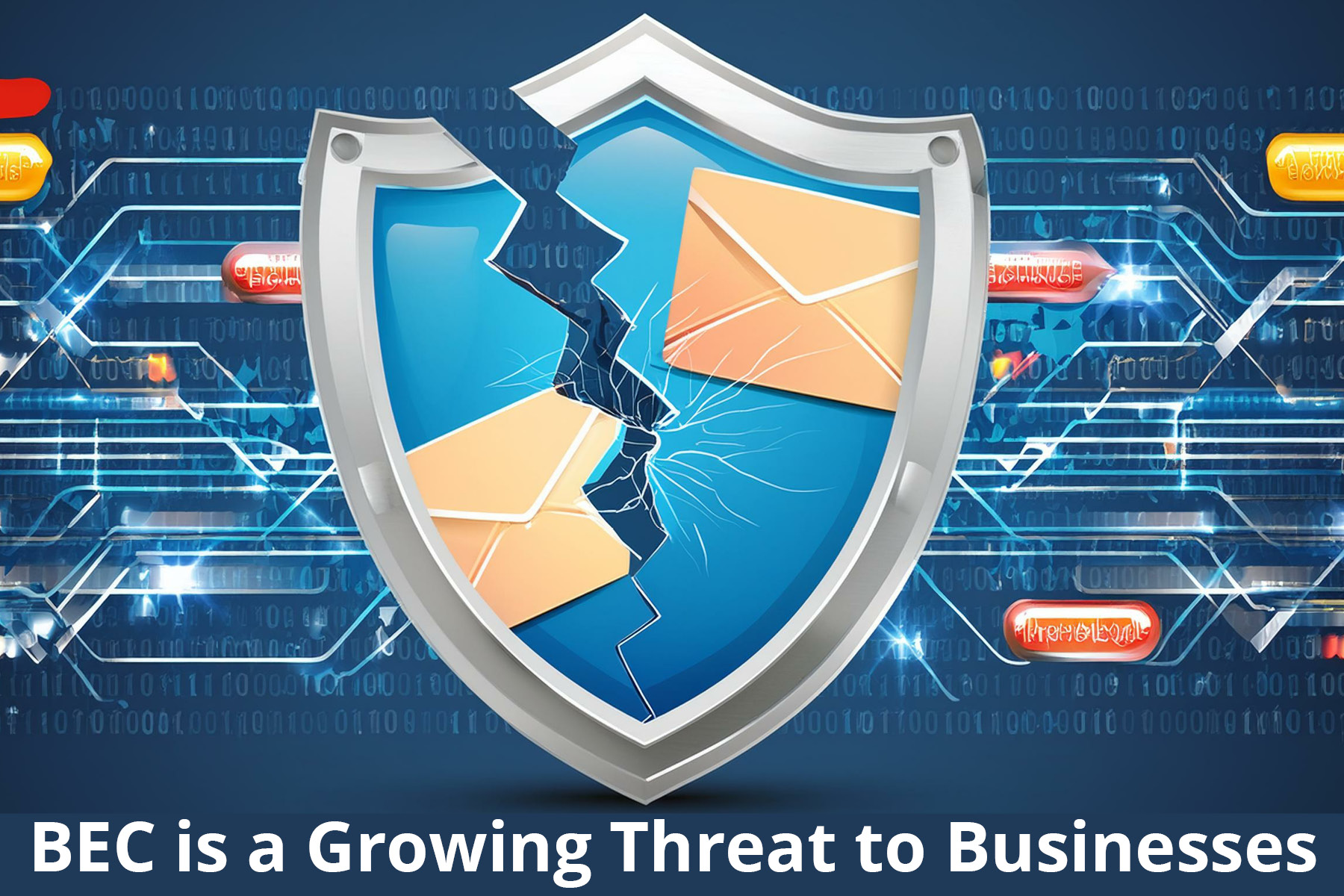Imagine starting your day with a routine email, only to find out later that it was a clever scam that cost your business thousands of dollars. This scenario, known as Business Email Compromise (BEC), is a growing threat to businesses of all sizes. Learn what BEC is, the tactics scammers use, and how you can protect your business from falling victim to these costly tricks.
What is Business Email Compromise?
At its core, BEC is a type of cyberattack where scammers use or hack in to business email accounts to commit fraud. They impersonate company executives, suppliers, or even employees to trick people into transferring money, sharing sensitive information, or even changing account details. It’s a sophisticated scam that relies more on deception than complex technology, making it a favorite among cybercriminals.
Common Tactics Used in Business Email Compromise
- CEO Fraud: One of the most common BEC tactics is pretending to be a high-level executive, like your CEO or CFO. The scammer will send an email that looks legitimate, urgently requesting a wire transfer or sensitive information. The email often plays on urgency and authority, making it hard for employees to question the request.
- Invoice Scams: In this tactic, attackers impersonate vendors or suppliers, sending fake invoices that appear genuine. They might even hack into a vendor’s actual email account to make the scam more convincing. Businesses often pay these invoices without second thoughts, thinking they’re paying their usual suppliers.
- Account Compromise: Sometimes, attackers gain access to an employee’s email account and use it to request payments or sensitive information from within the organization. Since the email is coming from a trusted source, these requests often go unnoticed until it’s too late.
- Data Theft: Beyond money, BEC can also be about stealing valuable data. Attackers might target HR or finance departments to gather information like employee tax statements or personal data that can be used in further scams.
How to Protect Your Business from BEC
- Educate Your Team: The first line of defense is your employees. Regular training on identifying suspicious emails and understanding BEC tactics is crucial. Teach them to question unexpected requests for money or sensitive information, especially those that create a sense of urgency.
- Enable Multi-Factor Authentication (MFA): Adding an extra layer of security to your email accounts can make it much harder for scammers to break in. MFA requires users to verify their identity in multiple ways, like a password plus a code sent to their phone.
- Verify Requests: Always verify any request for money or sensitive information through a separate communication channel. For instance, if you get an email from your CEO asking for a wire transfer, give them a quick call to confirm before taking action.
- Monitor for Unusual Activity: Set up alerts for unusual login attempts or changes in account behavior. Early detection of these signs can help you respond to a potential attack before it causes damage.
- Implement Email Filtering and Security Tools: Use advanced email security tools that can flag and filter out suspicious emails. These tools can identify red flags that might be missed by the human eye, providing an added layer of protection.
- Keep Your Systems Updated: Regularly update your software, including your email platforms, to protect against known vulnerabilities that attackers could exploit.
BEC is a growing threat, but with the right awareness and security measures in place, you can greatly reduce the risk to your business. By educating your team, using strong security protocols, and always verifying requests, you can stay one step ahead of these cybercriminals. We can help.




